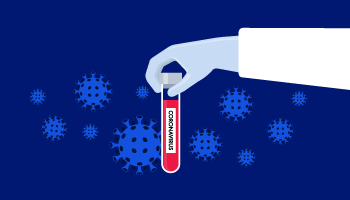COVID-19 Information for Travelers
Travel Health Advisory Regarding COVID-19:
Travel Security Report Regarding COVID-19:
Health Advice and Tips:
Webcast Replays:

Policy Guidance for Leisure Travelers
Recent Media Coverage


Helpful Resources
Travel Health and Prevention Tips
The common Human Coronaviruses mainly present as mild to moderate upper respiratory tract illnesses similar to the common cold. Symptoms may include runny nose, cough, fever, sore throat, headache, loss of taste or smell, shortness of breath, and may progress to pneumonia or bronchitis with shortness of breath and easy fatigability.
Those at high risk of developing complications include those with underlying chronic conditions, such as respiratory and cardiac diseases, immunocompromised individuals, diabetics, as well as those in extreme age groups (e.g. infants or the elderly). In addition, pregnant women are also at higher risk if infected by COVID-19.
Diagnosis
There are several types of tests for this virus available. This would include serum PCR assay, nasal swab, broncho-alveolar lavage, sputum and sometimes stool samples.
Treatment
The Pfizer-BioNTech, Moderna, and Johnson and Johnson’s Janssen COVID-19 vaccines are authorized and recommended for use in the United States. Studies show that COVID-19 vaccines are effective at keeping you from getting COVID-19 and will also help keep you from getting seriously ill even if you do get COVID-19. The COVID-19 vaccination works by teaching your immune system how to recognize the virus that causes COVID-19, and this protects you from getting sick with COVID-19. Contact your local health department to learn how and when you can get vaccinated.
Vaccine information from the World Health Organization (WHO) may be found at https://www.who.int/emergencies/diseases/novel-coronavirus-2019/covid-19-vaccines.
Vaccine information from The Centers for Disease Control and Prevention (CDC) may be found at https://www.cdc.gov/vaccines/covid-19/info-by-product/index.html..
The World Health Organization (WHO) published advice to help reduce the chances of being infected and prevent the spread of infection. These include:
- Wear a mask.
- Avoid crowded places especially within a closed and confined space and try instead to meet people outdoors. Avoid shaking hands and greet people with a wave instead.
- Wash hands with soap and water for at least 20 seconds.
- Use an alcohol-based sanitizer if soap and water are unavailable.
- Cover mouth and nose when sneezing and coughing and follow with hand hygiene.
- Avoid contact with people suffering from acute respiratory illnesses.
- Stay home when you are having symptoms of upper respiratory tract infection or have minor symptoms.
- Drink plenty of water and keep well hydrated.
- Regularly clean and disinfect objects and surfaces touched by an infected person.
The above measures are effective against all infectious agents, including Influenza A and B (“the flu”), which sickens millions of individual worldwide and kills thousands each year.
Quarantine
The CDC issued guidance after returning home from travel. These include taking the following precautions and steps to reduce exposure and limit transmission:
- After returning from your trip, get tested three to five days upon your return and self-quarantine for seven days. If you do not get tested, self-quarantine for ten days.
- Avoid being around people who are at increased risk for severe disease for 14 days.
- Wear a mask in shared spaces of your household if there are people in your household who did not travel with you.
- Wear a mask, stay away from crowds and continue to practice social distancing.
- Cover mouth and nose when sneezing and coughing by using disposable tissue and follow with hand hygiene by washing hands with soap and water for at least 20 seconds.
- Take your temperature with a thermometer two times a day and watch your health.
If you develop a fever (100.4F/38C), cough or have difficulty breathing call your health department for advice before seeking care. If you can’t reach your health department, call ahead before going to a doctor’s office or emergency room.
WHO has advised all worldwide healthcare personnel and airport security personnel to be extra vigilant and enact enhancement of surveillance at airports for early detection and prevention of spread of the disease.
Please visit the WHO website for further information.
AIG assumes no liability or responsibility for the use, interpretation or application of any of the information contained herein. The information is for general informational purposes only. None of the information contained in this material is intended as a substitute for professional medical advice, diagnosis or treatment. Always seek the advice of your physician or other qualified health providers with any questions you may have regarding a medical problem.

